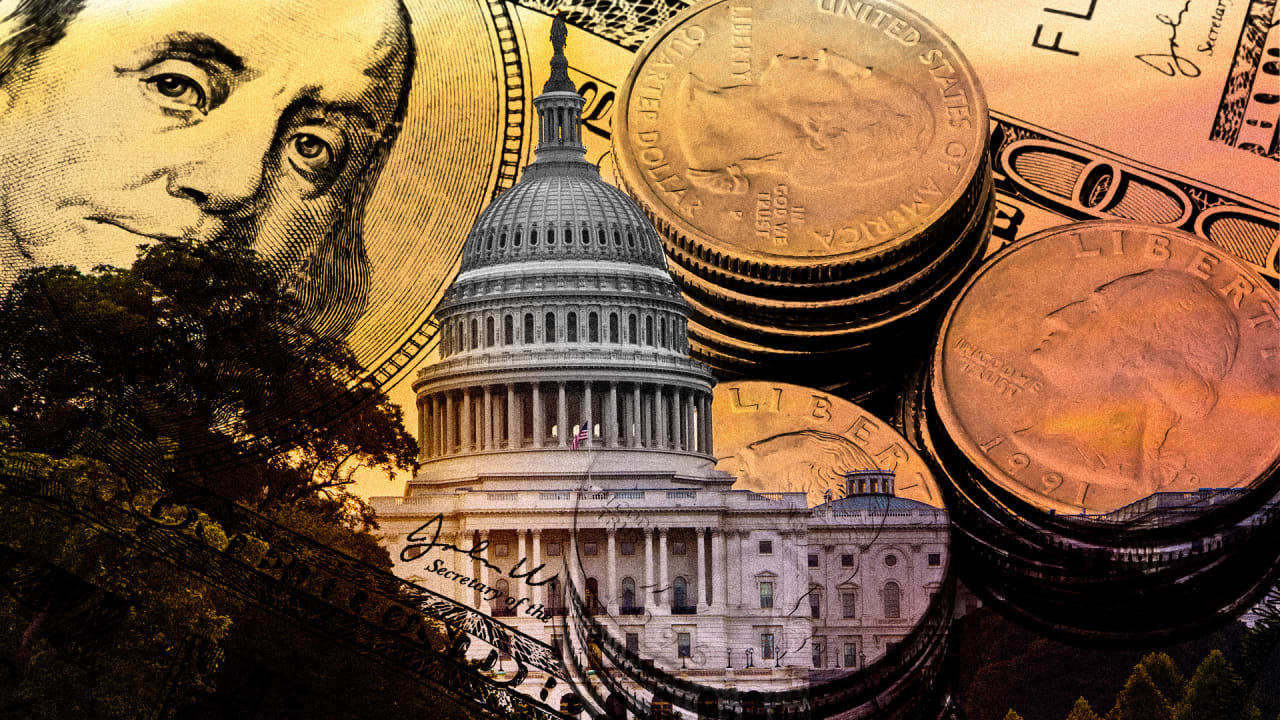No Tax on Tips Act: Senate passed bill unanimously, but it doesn’t apply to all workers. Here’s everything to know
The Senate unanimously passed the “No Tax on Tips Act” on Tuesday, a bill that would eliminate federal taxes on tips, and that President Donald Trump made a campaign promise when running for reelection. It now goes to the House for a vote. If passed, the legislation, creates a new tax deduction of up to $25,000 on income made from tips. The legislation comes as many Americans are feeling an added economic burden in the face of inflation, higher prices, and skyrocketing living costs. Here’s what you need to know. What is the ‘No Tax on Tips Act’? Bill S. 129, or the “No Tax on Tips Act” legislation creates a federal income tax deduction of up to $25,000 a year for certain types of cash tips for eligible employees. (These are cash tips workers report to employers for withholdings on payroll taxes.) Who is eligible for for the tax break? The deduction applies to employees who earn up to $160,000 in 2025; that amount will likely increase with inflation in the years ahead and applies to tips “received by an individual … in an occupation which traditionally and customarily received tips on or before December 31, 2023,” or including tips via cash, credit and debit card, and check, according to The Washington Post. Who supports the bill? Both Republicans and Democrats support the bill. Republican Sen. Ted Cruz of Texas introduced it back in January at the beginning of the year. Democratic Sen. Jacky Rosen of Nevada brought the bill to the Senate floor, where it passed with unanimous consent, which usually happens with more routine legislative matters. Nevada’s Sen. Rosen along with Democratic Sen. Catherine Cortez Masto co-sponsored the legislation. Who championed the’No Tax on Tips Act?’ During the 2024 presidential election, both candidates, Trump and Harris supported versions of the idea, with Trump making it a campaign promise during a June 2024 rally in Nevada, a state 25% of the state’s workers rely on tips; and one way Trump set out to court working-class voters, according to The Hill. What do critics say about the ‘No Tax on Tips Act’? The National Restaurant Association supports the bill, however critics say eliminating taxes on tips is an empty win for many hourly workers who don’t make enough to pay federal income taxes, and keeps workers at a lower overall pay rate instead of creating a higher minimum wage. What happens next? The bill now heads to the House of Representatives for a vote. A version of No Tax on Tips is also included in Trump’s giant tax and immigration bill, the One Big Beautiful Bill Act. On the Senate floor, Cruz said he was confident the bill would eventually pass either way.

The Senate unanimously passed the “No Tax on Tips Act” on Tuesday, a bill that would eliminate federal taxes on tips, and that President Donald Trump made a campaign promise when running for reelection. It now goes to the House for a vote.
If passed, the legislation, creates a new tax deduction of up to $25,000 on income made from tips.
The legislation comes as many Americans are feeling an added economic burden in the face of inflation, higher prices, and skyrocketing living costs.
Here’s what you need to know.
What is the ‘No Tax on Tips Act’?
Bill S. 129, or the “No Tax on Tips Act” legislation creates a federal income tax deduction of up to $25,000 a year for certain types of cash tips for eligible employees. (These are cash tips workers report to employers for withholdings on payroll taxes.)
Who is eligible for for the tax break?
The deduction applies to employees who earn up to $160,000 in 2025; that amount will likely increase with inflation in the years ahead and applies to tips “received by an individual … in an occupation which traditionally and customarily received tips on or before December 31, 2023,” or including tips via cash, credit and debit card, and check, according to The Washington Post.
Who supports the bill?
Both Republicans and Democrats support the bill. Republican Sen. Ted Cruz of Texas introduced it back in January at the beginning of the year.
Democratic Sen. Jacky Rosen of Nevada brought the bill to the Senate floor, where it passed with unanimous consent, which usually happens with more routine legislative matters.
Nevada’s Sen. Rosen along with Democratic Sen. Catherine Cortez Masto co-sponsored the legislation.
Who championed the’No Tax on Tips Act?’
During the 2024 presidential election, both candidates, Trump and Harris supported versions of the idea, with Trump making it a campaign promise during a June 2024 rally in Nevada, a state 25% of the state’s workers rely on tips; and one way Trump set out to court working-class voters, according to The Hill.
What do critics say about the ‘No Tax on Tips Act’?
The National Restaurant Association supports the bill, however critics say eliminating taxes on tips is an empty win for many hourly workers who don’t make enough to pay federal income taxes, and keeps workers at a lower overall pay rate instead of creating a higher minimum wage.
What happens next?
The bill now heads to the House of Representatives for a vote. A version of No Tax on Tips is also included in Trump’s giant tax and immigration bill, the One Big Beautiful Bill Act.
On the Senate floor, Cruz said he was confident the bill would eventually pass either way.












































































































![Building A Digital PR Strategy: 10 Essential Steps for Beginners [With Examples]](https://buzzsumo.com/wp-content/uploads/2023/09/Building-A-Digital-PR-Strategy-10-Essential-Steps-for-Beginners-With-Examples-bblog-masthead.jpg)


















































